Tuesday, July 4
While the pandemic introduced unprecedented global challenges, it coincided with increasingly complex social, political, and environmental contexts that introduced new priorities and challenges for Saskatchewan schools. Concerns for equitable participation, environmental sustainability, and preparing youth to contribute to the kinds of communities that we aspire to takes on greater importance in an ever more polarized world. Still, Saskatchewan schools continue to demonstrate resilience and innovation in adapting to changing conditions to ensure that students are prepared to not only live in a changing global context, but to acquire the values, skills, and knowledges consistent with a vision of the province that resonates with Indigenous, rural, urban, and northern communities alike. Now is the time to peer into the future and imagine communities prepared to embrace our challenges and create new opportunities. The panelists will address a vision for the future of education from their unique vantage points, the role of schools in anticipating an ideal future, and challenges for school leaders in re-culturing schools to prepare children and youth for what lies ahead.
|
Ian Krips, Associate Executive Director, Educational Leadership, Saskatchewan Teachers' Federation Ian Krips worked for Saskatoon Public Schools for 16 years teaching secondary Music, English and Creative Writing. Ian was Associate Director of the Saskatchewan Professional Development Unit from 2006-2012 and has facilitated professional development opportunities throughout Saskatchewan and internationally. In 2013, Ian joined the Senior Administrative Staff of the STF and worked in the areas of labour relations, governance, and initiatives in support of teacher professionalism and professional growth. In 2017, Ian was given the opportunity to develop the Professional Issues portfolio which coordinates Federation work relating to teacher professionalism, professional growth, codes of conduct and ethics, new teacher supports, principalship supports, social justice programming, educational accountability and trends in education affecting teacher professionalism and practice. In October 2019, Ian was appointed Associate Executive Director, Educational Leadership. |
 |
|
Colleen MacPherson, Board Chair, Saskatoon Public Schools Colleen was first elected to the board of Saskatoon Public Schools in 2009. During her years as a trustee, she has served four terms as vice-chair of the board and chaired both the pension and governance committees. In November 2019, she was elected chair of the board, a position she has held ever since. She also chairs the Public Section of the Saskatchewan School Boards Association, which represents 16 public school divisions across the province. In July 2023, she will receive the Public Education Advocacy Award from the Canadian Teachers Federation at its annual meeting in Ottawa. In her “free” time, Colleen works as a freelance writer and editor. |
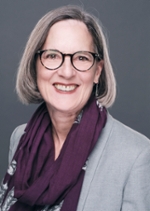 |
|
Delores Netmaker, Executive Director of Education Deloris Netmaker is a proud member of Big River First Nation. She has been married for 32 years, mother of 4 sons and a proud grandmother! Being an educator at this time has been both challenging and exciting – becoming a grandmother has been one of her greatest motivations as she moves forward in the work being done today! Deloris has been involved in Education for the last 29 years. She has served as a teacher in all grades, Special Ed./Resource, a Principal and Vice- Principal, as well as a Superintendent. She has worked in Ontario and Saskatchewan in First Nations and with the Public-School Board in Saskatoon. Through her experiences it has given her insight into the needs of the students and the challenges they face. Currently Deloris serves as the Executive Director of Education at FSIN. The Federation of Sovereign Indigenous Nations is Saskatchewan-based First Nation organization. The FSIN represents 74 First Nations in Saskatchewan. The Federation is committed to honoring the spirit and intent of the Treaties, as well as the promotion, protection and implementation of the Treaty promises that were made more than a century ago. Education has always been a passion and desire to see all students succeed! Her hope is to see that all walk in the spirit of reconciliation both young and old, that we understand where we all have come from so that it will give us clear direction of where we are going. If we as leaders have an open mind and a willingness- it is possible for those following to see a world different from what we grew up in. |
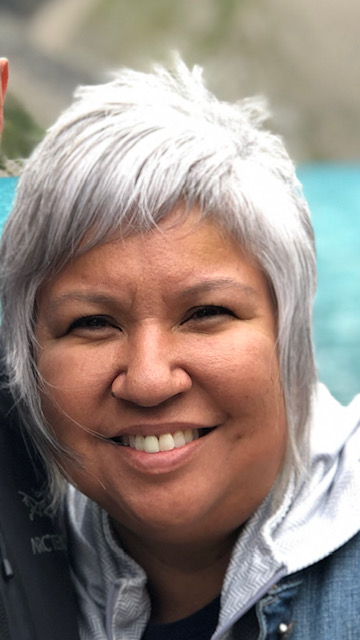 |
|
Brad Nichol, LEADS Representative I get to be Learning Superintendtend with Prairie Spirit School Division. In addition to supporting principals and vice principals across our school division through the Admin Planning Team and our Administrative Leadership Team, it is my great privilege to hold the portfolio for Indigenouse Perspectives, Partnerships and Outcomes. I have worked in education in three provinces, numerous schools and grade levels and have 10 years of experience as a school principal. I am very excited to be learning alongside so many gret people at this year's SPSC. |
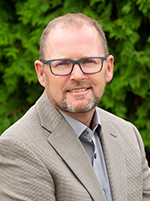 |
Tricia and Nevin will share their experiences of the principalship through their unique situations in urban and rural schools. Be prepared for a realistic and engaging session with an opportunity for questions! The presenters will touch on several different aspects of life as a principal:
- School Culture
- School Policies and Procedures
- Staffing and Human Resources
- Instructional Leadership
- Student Support
- School Finances and Budgeting
- Parent and Community Engagement
- School Safety and Security
- Leading School-based Professional Development
- Communication and Leadership
|
Tricia Erlendson Tricia has been an administrator in the Regina Catholic School Division, since 2011. Community Education holds a special place in her heart and collaborating with teachers to support students fills her bucket. This fall she is excited to be the principal at Deshaye School in Regina, the 10th school in her teaching career. |
 |
|
Nevin Halyk Nevin is originally from small-town Saskatchewan, and has spent his 30-year education career in rural schools. He has been a school administrator for 18 years in 3 different schools. Nevin is married with 5 grown children, 3 grandchildren and one more on the way. He's deeply involved in his home community of Foam Lake. He's passionate about education, and loves working with his school team to provide a great experience for students! |
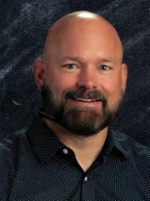 |
Wednesday, July 5
In this presentation the education team at The Canadian Light Source will share knowledge and tips into how to promote science inquiry in a reconciliation context. Tracy Walker, Education Program lead and Dallas Pelly, Education Coordinator- Indigenous programs will share insights about the various learning partnerships that have been established through the work of the CLS. We will also learn about the work that CLS is doing to change who sees themselves in science, including increasing Indigenous participation in STEM education and learning. Participants will also gain valuable insight into the many program offerings of the CLS including: Students on the Beamline, Teacher PD, seminars & workshops, TREE kits and more.
Tracy Walker:
Tracy is the Education Programs Lead at the Canadian Light Source, Canada's only synchrotron research facility. The education team focuses on building bridges between science research and science education and is working on understanding how Indigenous ways of knowing and western science processes can work together. She has been involved in education with pre-kindergarten learners and has classroom experience at the elementary, high school, and university levels in addition to the informal science education programs at CLS. Her passion for experiential transformative learning was the subject of research in achieving a Master’s of Education degree.
Dallas Pelly:
Dallas Pelly is an Indigenous educator, community builder, and social innovator. He is a proud U of S alumnus of the ITEP program (B Ed ’18). He is excited about working as an Education Coordinator- Indigenous Programs at the Canadian Light Source. Dallas is passionate about helping bridge the gap between Indigenous knowledge systems and mainstream science. In his spare time Dallas love biking, going for long walks and wrestling with his 3 sons, Oaklen, Emmett and Denver. Dallas and his family currently reside on Treaty 6 territory in what is now known as Saskatoon.
Principals play a significant and crucial role in the education system which can often present as being challenging and complex. Tasked with creating an environment for effective teaching and learning, principals may be faced with issues of a legal nature.
This session will cover some legal topics that principals may encounter such as accommodation, off-duty conduct, privacy, student suspensions, teacher regulation and other legal issues.
Will Collins was originally called to the Bar of British Columbia in 1997 and returned home to Saskatchewan where he was admitted to the Bar in 1999. Earlier in his career, Will took a break from the practice of law and became a Member of the RCMP, allowing him to live in a First Nation community and then later work as an investigator in specialized urban units including Economic Crimes and Major Crimes. Will returned to practicing law and was a Senior Crown Prosecutor with the Saskatchewan Ministry of Justice. His diverse legal background also includes working with Indigenous governance and representing members of the RCMP in professional discipline hearings. He has extensive experience before the Provincial and Superior Courts, instructed at the Saskatchewan Police College and is a member of the Canadian Bar Association. In September of 2019, Will joined the Saskatchewan Teachers’ Federation as its first in-house legal counsel. He is the father of three children and the husband to a wonderful teacher.
Thursday, July 6
As Schools across the province learn to embrace opportunity to celebrate the gifts and contributions of Indigenous peoples so that all Saskatchewan students are aware of Indigenous histories, issues, and ways of knowing, the role of schools in supporting the protection and proliferation of Indigenous languages must be considered. Indigenous educational leaders with a passion for the sustainability of Indigenous languages have been at the forefront of transforming the educational landscape to ensure that Indigenous children have opportunity to learn their ancestral languages. The panel will introduce three Indigenous educational leaders who are leading the way in Indigenous language education. Panellists will share their inspiration for the teaching of Indigenous languages, the future of Indigenous language education in Saskatchewan, and how all school leaders can play a part in ensuring that Indigenous languages in Saskatchewan are strengthened and sustainable for generations to come.

When you think about times when you’ve observed a classroom-in-action, at-its-best, an exciting teaching-learning interaction, or school-level thriving, what have you seen? What might early career and aspiring leaders do and dare to do to help their schools flourish? This session is about school leaders with moral imagination focusing their attention on what has worked to foster vitality and spending their precious time and energy in ways that result in the generation of more and more of this thriving. We will look at several stories, research findings and models of positive school leadership for flourishing schools.
Keith Walker has worked directly with close to a hundred different schools and organizations whose leaders and constituents have aspired to become increasingly effective and supportive of flourishing. With colleagues, Keith has written over 200 articles, chapters, and books and mentored over 100 graduate students to the completion of their research degrees. Leadership, organizational and governance challenges and delights have been his focus for a number of decades. Keith, and his wife Viv, have the joy of loving their eight adult children (half by “partnership agreements”😊) and six grandchildren.
Friday, July 7
The 2023 SPSC program focuses on six major categories. During the week we ask each fireside chat group to submit questions to be asked to a panel of our SPSC facilitators on the last day. We are asking that you explore these six “framing topics” at the culminating plenary called “READY SET, ASKED, AND ANSWERED”. Our expect panel of facilitators takes turns answering the selected questions that come out of those submitted by the separate “fireside chat” cohorts.
Framing Topics
- Planning and Accountability
- Change Leadership
- Leading Learning
- Social Responsibility and Inclusion
- All Our Relations: Partners in/and Education
Impact Session Descriptions
Principals play a significant and crucial role in the education system which can often present as being challenging and complex. Tasked with creating an environment for effective teaching and learning, principals may be faced with issues of a legal nature.
This session will cover some legal topics that principals may encounter such as accommodation, off-duty conduct, privacy, student suspensions, teacher regulation and other legal issues.
Will Collins
Will Collins was originally called to the Bar of British Columbia in 1997 and returned home to Saskatchewan where he was admitted to the Bar in 1999. Earlier in his career, Will took a break from the practice of law and became a Member of the RCMP, allowing him to live in a First Nation community and then later work as an investigator in specialized urban units including Economic Crimes and Major Crimes. Will returned to practicing law and was a Senior Crown Prosecutor with the Saskatchewan Ministry of Justice. His diverse legal background also includes working with Indigenous governance and representing members of the RCMP in professional discipline hearings. He has extensive experience before the Provincial and Superior Courts, instructed at the Saskatchewan Police College and is a member of the Canadian Bar Association. In September of 2019, Will joined the Saskatchewan Teachers’ Federation as its first in-house legal counsel. He is the father of three children and the husband to a wonderful teacher.
Rob Lehne (he/him/his)
Rob taught in Davidson and Melfort Saskatchewan, in high school settings, primarily as a Core French teacher. This always came with “other duties as assigned”, so he has taught a plethora of subjects and grade levels. Rob taught in the classroom for 15 years, with some opportunities in a coordinator role. Rob was connected to the STF and local associations from year one, serving in almost every local association capacity, and numerous STF roles. He started with the STF as a Senior Administrative Staff member in 2010. His current field assignment includes Ile a la Crosse, Creighton, Northern Lights and Saskatoon Public school divisions. Rob’s portfolio includes local associations, Pension and Benefits board, Teachers’ Superannuation Commission, and provincial bargaining.
Withman Jaigobin
Withman Jaigobin has been as Senior Administrative Staff with the Saskatchewan Teachers’ Federation since April of 2018, with portfolio responsibility of principal, vice-principal and assistant principal support. Withman has twenty two years of experience in school division leadership as principal, vice-principal and superintendent, both in an urban and rural setting.
This section will focus on leading and supporting professional growth in a manageable and sustaining way throughout the school year. We will visit the power of instructional habit changes, as well as setting goals that are grounded in instructional and formative interactions.
My career in education has stretched from high school PAA, to early years literacy, PreK-12 administration, Superintendent of Schools and now Director of Education for the North East School Division. I have been fortunate throughout my career to work in a job I love, first helping students grow and learn and now supporting educators and the North East organization. I am continually grateful for the generosity of my colleagues across Saskatchewan, who have supported my learn journey and shared their own passion to support our learners. I am excited to join the Saskatchewan Principals Short Course again this year, to listen and share with educational leaders from across Saskatchewan.
Nicola Bishop-Yong, Superintendent of Education for Saskatoon Public Schools, will share information about the following post-pandemic initiatives and their impact on student learning and engagement:
- Nature-based learning
- Embedded literacy supports
- Anti-racist and anti-oppressive learning
Nicola Bishop-Yong has worked with Saskatoon Public Schools for 25 years in a variety of roles. She is currently a Superintendent of Education with responsibilities for grade 1-8 curriculum, instruction and assessment, equity and nature-based programming.

Eventually all leaders need to provide feedback to colleagues, peers, and individuals. Yet, providing feedback is not a natural skill set for many people and can be become a point of stress and anxiousness as much for those who receive it as it is for those who provide it. Good feedback is a necessary and important step in workplace leadership and can be a source of improved outcomes, strengthened relationships and healthy workplace cultures. This session will explore some models for providing feedback and identify some good resources for learning more about conversations that matter.
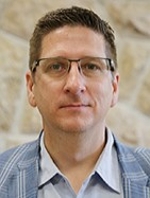
This presentation reports on the ways in which rural school principals in Alberta, Manitoba, and Saskatchewan enact instructional leadership within the five leadership domains conceptualized by Robinson, Lloyd, and Rowe (2008). Rural principals often have teaching responsibilities in addition to supervisory and managerial responsibilities. These complex roles often impact the way in which principals practice instructional leadership due to time constraints and competing priorities. Although principals often suggest that they are “not where they wanted to be” in their efforts to enact instructional leadership, Rural principals’ actions demonstrate exemplary practice in this regard. The nature of the discourse perpetuated by leadership groups and teachers’ associations that equates instructional leadership with classroom visits is a challenging model that is often not feasible in small rural schools. This characterization has the effect of decreasing rural principals’ self-efficacy as instructional leaders. We present suggestions for a reconstitution of the role of the rural principal and propose alternative IL practices for rural principals so that instructional leadership expectations are realistically manageable for leaders in small rural schools.
Dr. Paul Newton is Professor in the Department of Educational Administration at the University of Saskatchewan. Formerly, he was an Associate Professor in the Department of Educational Policy Studies at the University of Alberta and a school principal in Saskatchewan, Canada. He serves as editor in Chief of the Canadian Journal of Educational Administration and Policy and is Past President of the Canadian Association for the Study of Educational Administration. His research interests include administrative practices, the principalship, sustainability and social justice in schools, educational improvement, teacher leadership, and theoretical constructions of leadership and administration.
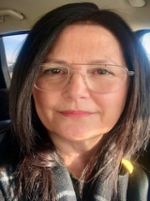
This virtual session will provide an overview of the topic for new and seasoned administrators that include student tracking and data submission timelines, the high school credit transfer process, secondary level credit options, and educator service information. Time permitting a Q & A will follow. Links to all resources will be provided.
Shelley Lowes is the Saskatchewan Ministry of Education Registrar and Director of Student and Educator Services. Born and raised in Saskatchewan, she earned her Bachelor of Arts and Education from the University of Saskachewan and Master of Education from Memorial University. She has taught Kindergarten to grade 10, in Saskatchewan, Manitob and Washington State.
In her spare time enjoys hosting family and friends in Regina or at Emma Lake, instructing yoga, volunteering and cheering on her favorite sport teams.
documents/july-2023-principal-short-course_reghdbk-ims-shelley-lowes.pdf
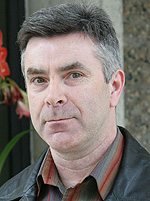
This session provides an overview of various graduate programs offered within the Department of Educational Administration, University of Saskatchewan. Aspects of the Masters in Educational Administration (Course-based and Thesis -based) are reviewed, as are the PhD in Educational Administration and the Education Doctorate in Educational Leadership. Benefits of these programs, including professional development and career advancement, will be discussed.
Dr. Michael Cottrell is Associate Professor and Graduate Chair in the Department of Educational Administration. His teaching and research interests include Indigenous Education, International Education and History of Education.
Studies have also shown that the extent to which families are involved in the education of their children can contribute to improving the education outcomes of all students, including immigrants and refugees who are culturally and linguistically diverse. The importance of family involvement in education became more evident during the COVID 19 pandemic when learning moved from schools to homes. This presentation is based on an ongoing research project whose aim was to strengthen school leadership supports for immigrants and refugees by examining (a) the experience of principals and the newcomer families with school leadership in Saskatoon and (b) establish how both principals & newcomer families can be supported to ensure students’ success. The presentation will cover the research findings, and including discussions about supports for at home learning, the resources and infrastructure needed to support both families and school leadership. The participants will have an opportunity to share their experience with leading learning for culturally and linguistically diverse newcomers.
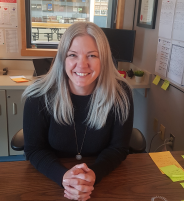
Being a principal in Saskatchewan invites us to walk a sometimes difficult line between being a direct supervisor but also STF member and colleague to teachers we work alongside. How might this tightrope be best navigated? What is your role in teacher supervision and evaluation? How can you build and maintain relationships with those in your care? What should you be wary of? Why are principals and vice principals critical in our publicly funded education system? This session will try to tackle these, and other questions related to this important dual role.
Research shows that students who are 2SLGBTQIA+ experience poorer health and educational outcomes as compared to their straight cisgender peers. This session will discuss what school leaders should do to address the health and educational disparities, to engage community, and to intentionally and strategically plan for safety and inclusion.
| Kyla Christiansen has been a high school teacher and administrator, a sessional instructor at the University of Regina and at Mount Royal University, and a consultant and coordinator for several school divisions in Saskatchewan. She has always had a passion for health & wellness, and a commitment to advocacy for gender and sexual diversity. This passion has allowed Kyla to facilitate discussions and professional learning for educators and senior leaders as they deepen their knowledge and strengthen their efforts to support staff and students who are gender and/or sexually diverse. |  |
|
James McNinch started his educational career as a high school English teacher and college administrator in Lac La Biche, Alberta. He is a former Dean of the Faculty of Education at the University of Regina where he worked for 25 years. In 2003 he offered the first undergraduate course in Canada on Schooling and Sexual and Gender Identities. With many revisions this course continues to be an important elective 20 years on. With others McNinch was instrumental in bringing Camp fYrefly to Saskatchewan. In 2022 more than half of the 55 youth attending the residential retreat at Luther College self-identified as asexual, gender-fluid or transgender or two-spirit. McNinch is a regular reviewer for The Journal of LGBTQ youth and The Journal of Men’s Studies and continues to act as a consultant to school divisions on gender and sexual diversity. |

This interactive session will focus on practical strategies and considerations for supporting new and newer teachers in your school.
Derek Barss worked as a teacher, consultant and administrator for Saskatoon Public School for 25 years prior to joining the STF in August 2018. Currently, Derek works in labour relations with the Teacher Federation. Derek’s portfolios include Teachers in the First Five Years, Substitute Teachers, Policy and Governance and Leadership.
documents/supporting-new-teachers-principals-short-course.pdf
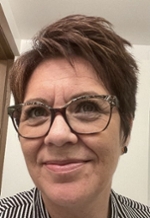
Being vulnerable and taking time to build a strong foundation helps to nuture the change you want to see in your school. As leaders, we really have to think about who we are, who we want to be, how we want to work with our staff.
documents/building-trusting-relationships-jackie-durocher.pdf

Dr. Sawchuk will lead participants through a series of perspectives on parent and family engagement. Participants will develop skills in developing their own framework to work with community to support learning outcomes for students. Family, school, and leadership components of family engagement will be explored based on both research and practice. The four articles that this presentation is based upon are attached for participants' consideration.
documents/developing-frameworks-for-working-with-parents.pdf

Jill will be presenting a session on school-wide positive behaviour interventions and supports (PBIS). She will share her experiences in implementing PBIS in her school. She will make connections between PBIS and its connection to teacher and student well-being.
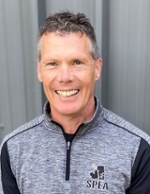
The importance of physical education, activity, physical literacy, and PLAY has never been more relevant in schools as it is today. This session will provide insight into how to develop a CSCH model that supports academic learning and a healthy, happy, and safe learning environment for students.
Dr. Reg Leidl is currently the Executive Director for Physical and Health Education (PHE) Saskatchewan. He has been a physical educator for 40 years and was an in-school administrator for 23 years. His areas of research are in physical literacy, sport psychology, and educational leadership.

The session will overview the role of a school principal when managing fundraising revenues and school-based funds. We will also discuss the types of fundraisers that are acceptable and how to manage public perceptions when requesting funds.
Joel Lloyd joined Greater Saskatoon Catholic Schools in 2013 in the position of Chief Financial Officer. In his role, he has executive responsibility for the school division’s finances, facilities, transportation, payroll, insurance, and legal matters. Joel has always promoted transparency in school finances and the prioritization of funding to support classrooms whenever possible. Prior to joining Greater Saskatoon Catholic Schools, he worked for Living Sky School Division and Light of Christ School Division which are both located in North Battleford, Saskatchewan. Joel resides in Saskatoon, with his wife Ashley and two children, Maya and Hudson. When not working, Joel can be found at his family cabin, the rink, or the ballpark.

"Cultivating Digital Citizenship: Preparing Future Leaders in the Age of AI" explores the evolving landscape of education in the AI age. This session aims to inspire early career and aspiring leaders to leverage the transformative potential of online learning, encouraging a purpose-driven approach to digital citizenship that combines technical skills with an understanding of AI's ethical and societal implications. This session is designed to empower educators to create impactful, inclusive, and future-ready learning environments, fostering a generation of learners who are adept digital citizens.
Dr. Marc Gobeil, a Ph.D. graduate from the University of Saskatchewan's College of Education, is a passionate advocate for experiential learning. With eight years lecturing in Educational Technology and Design, he has also imparted practical knowledge in secondary technology and Practical and Applied Arts (PAA) courses in Saskatoon. In addition to his academic pursuits, Dr. Gobeil has held various consultancy and coordination portfolios. This fall, he continues his commitment to progressive learning strategies as the Principal for the Saskatoon Campus of the Saskatchewan Distance Learning Corporation, leading the way in online education delivery.
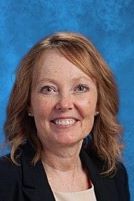
As the use of technology in classrooms continues to increase, school leaders play an important role in promoting the use of these tools to authentically engage students in their learning. Participants will explore how blended learning and online learning can be used to support a school-wide personalized learning approach that is centered on developing 21st-century skills.
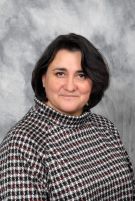
School communities are very complex systems that require a high degree of skill to lead. Recently, the focus has shifted from managerial to instructional leadership. It is important to think about instructional leadership and unpack that term. What are the dimensions of instructional leadership? Are there dimensions that are more effective than others? What are the implications for school leaders? How will this impact the development of a leadership journey? Participants in this session will explore Hattie’s research that outlines the effect size of instructional leadership and make connections to their own leadership story.
documents/exploring-the-impact-of-instructional-leadership.pdf
Traditional walk-throughs are often guided by checklists of strategies that principals look for as they observe teachers and instruction. In this session, participants will go beyond checklists to look at ways administrator walk-throughs can be used to support student learning.
documents/2023-administrator-walkthroughs-to-support-student-learning.pdf
|
Eric has been working in education for the last 15 years and is the current Principal of Lindale Elementary School in the Prairie South School Division. Eric is a University of Saskatchewan Alumni and received his master’s in educational administration and leadership from the University of New Brunswick. As a Principal, Eric believes we can support all our students by engaging them in their own learning. Eric began his career as a middle years teacher and shifted to the role of an in school administrator 7 years ago. He is married to his wife, Carol, and enjoys playing sports with his kids (Ella 12 and Jack 10), BBQing on the deck and hanging out at the lake. |
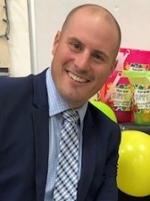 |
|
Darran has over 30 years of working in the Education Sector. First as a middle years' teacher then an elementary school administrator in Yorkton. Darran has been a Superintendent of Education with Good Spirit School Division and Superintendent of School Operations for Prairie South School Division, where he currently works. He is part of a senior administration team that believes strongly in a people-first philosophy and the concept of learning together. Along with data analysis, “collective common sense” is a driving force behind the decisions that are made. As a Superintendent of School Operations, he has the responsibility of supporting the elementary schools in Moose Jaw, Assiniboia, and Caronport as well as two Hutterite Colonies. His portfolio items have included leading Outcome-Based Reporting, School Libraries, School Community Councils, Technology Department, and Band. Darran believes strongly in the impact school leadership has on student learning. Darran is married with three adult children. He enjoys running, biking and cross-country skiing. |
 |
In classrooms and schools, dysregulated and disruptive students miss essential instructional time. The Equity Matrix, grounded in culturally responsive, anti-oppressive practices, is a tool which administrators and teachers can use to anticipate and respond to the causes of students’ behaviors, thereby limiting the loss of instructional time. Conflict between students also jeopardizes student learning time. The Essential Citizenship Competencies Wrap (ECC Wrap) is a restorative process which administrators and teachers can use to support students to collaboratively address issues and resolve conflicts as they arise in the classroom and school. Both the Equity Matrix and the ECC Wrap center student voice and agency.
In this session, PSSD principal, Diana Jemieff Hayes, and educational consultant, Sherry Van Hesteren, will introduce participants to both tools – including their design, underlying theory, applications, and implications. Each participant will receive a package of related materials for deeper learning and use.
Diana Jemieff Hayes
B.Ed., B.MUS., M.A., Ed. D. (in progress)
Diana Jemieff Hayes has been an educator for over seventeen years. She has been an administrator for 9 years and is currently a Principal in Prairie Spirit School Division. She is currently working on her Ed. D. dissertation focusing on a restorative approach to school discipline.
Sherry Van Hesteren
B.Ed., B.A., M.A., Ed. D. (in progress)
Sherry Van Hesteren has been an educator for over twenty-five years in four school divisions in many roles, including classroom teacher, instructional coach, learning coordinator, consultant, professional developer, facilitator, and program evaluator. She is currently a teacher, a consultant to school divisions, and an Ed.D. student focusing on the implementation of equity-focused strategic plans and policies.

In this session, participants will learn empowering tools that can identify stressors and assess one’s resilience strengths while meeting numerous K-12 educational learning outcomes. Individuals will learn practical tools to mitigate inevitable adversity, decrease stress levels, engage in play, combat negative thinking, and understand the connection between thoughts, emotions, and behaviors. These research-based activities nurture resilience and can be effectively scaffolded in both the classroom and workplace. As participants work through the five pillars of resilience, they will gain valuable tools and information that anyone of any age can use.
Dr. Elaina Guilmette is a curriculum development coordinator for the School of Environment and Sustainability at the University of Saskatchewan and a Wellness coordinator in Sun West School Division. She earned a BEd, MEd., and PhD in Curriculum Studies from the University of Saskatchewan.
In this session we will provide an overview of the new online centre, the programs and supports it offers to students and schools across Saskatchewan and how we can support school administrators to benefit their local school. The presentation will also include an overview of the SaskDLC’s Resource Bank and how it’s resources can benefit students, staff and parents.
Darren Gasper – Darren is the new Chief Executive Officer for the SaskDLC. He previously served as a Superintendent of Technology for the Sun West School Division for the past 10 years and was the Principal of Kenaston School for 7 years.
Kelli Boklaschuk – Kelli is the new Superintendent of Student Programming at the SaskDLC. She previously served as the Superintendent of Learning for Sun West for the past 5 years. Kelli has also worked for the Brandon School Divison and Greater Saskatoon Catholic School Division as well.
Overview of the key components of Supporting Student Assessment in Saskatchewan (2022) and My Assessment Toolkit (2023). These resources aim to support teachers and school division leaders with classroom-based assessment in Saskatchewan by:
- providing research-based effective practices for classroom assessment;
- outlining philosophical ideas and guiding principles; and,
- reflecting the spirit of continuous improvement.
|
With almost 30 years of experience in Education in French Immersion and Fransaskois schools as a teacher, learning resource teacher and assessment consultant, Nathalie Gareau Gélinas currently serves as a French Educational Consultant for the Student Achievement and Supports Branch at the Saskatchewan Ministry of Education. Nathalie appreciates having had the opportunity to support educators across Saskatchewan with classroom-based and large-scale assessment as well as develop curricula in addition to instructional and assessment supports. Nathalie is fransaskoise and passionate about ensuring equitable services in French and English for the students, teachers and educational system leaders in the province. Nathalie has a thirst for knowledge and adventure and cherishes spending time with family. |
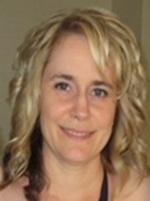 |
|
Shelly Reed recently joined the Saskatchewan Ministry of Education as an Education Consultant for the Assessment Unit in the Student Achievement and Supports Branch. She superannuated in May, having worked a total of 32 years in South East Cornerstone Public School Division and Regina Public Schools, primarily in elementary education. Over those years, Shelly held the roles of Classroom Teacher, Vice Principal, Learning Resource Teacher, Teacher Librarian, and Curriculum Consultant. Shelly is grateful to continue to have opportunities to support students in her work with improving teaching and learning through a balanced assessment approach. Completing Masters’ Degrees in both Education Administration and in Curriculum and Instruction (with a focus on Anti-Oppressive Education) has led to a paradigm shift in how Shelly approaches equity in education. She has a passion for social justice work and equitable education for all. Shelly enjoys Roughrider football, hiking mountains, kayaking, and, of course, spending time with her children and grandchildren. |
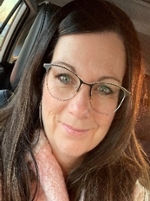 |
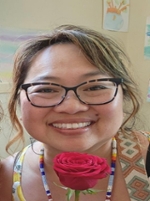
This session will involve a teacher’s perspective around how anti-racism and anti-oppressive education can be brought into a school setting. We will explore a variety of methods that were used to invite teachers to challenge their own thinking that results in action.
Tina Rioux has been an educator for over twenty-five years. She is a first-generation Chinese woman born and raised in Maple Creek, SK. Tina has taught at the middle years and secondary levels. In 2014, Tina was selected as one of the curriculum writers for the new Health Science 20 course. In addition to teaching life sciences at the secondary level, Tina has served as a Secondary Assessment Consultant with Saskatoon Public Schools and facilitated Accreditation seminars for the Professional Development Unit at the STF. She serves as a committee member for the STF Practicum Advisory Committee and the STF Racialized Teacher Advisory Committee. Currently, Tina teaches at Nutana Collegiate in Saskatoon.
documents/principal-short-course-nutana-story-2023-shared.pdf
Celeste started NLMFK in honour of YOUTH everywhere and in memory of her son, Jacob Leicht, who passed away in the Humboldt Broncos crash. Its purpose is to create opportunities for students from non-Indigenous and Indigenous communities to form friendships and to learn from each other as a response to the TRC Calls to Action. Schools in Humboldt have partnered with various schools across Saskatchewan through penpal writing, video conferencing, sharing photos, and doing fitness challenges. The hope is that communities all over connect to help foster peace and to create unity in our province, for youth to have fun and demonstrate the good that happens around us while challenging the media to change their narrative to a good one.

The Indigenous Education Responsibility Framework (IERF) was released in 2022. Directly aligned to Inspiring Success, the provincial First Nations and Métis education policy, the IERF is intended to support school divisions in their implementation of this policy by providing a framework to self-assess their efforts. This session will provide an overview of the foundations of the IERF, the process by which it was developed, and the way in which its implementation is envisioned. The IERF should encourage individuals to evaluate and shift behaviours and practice based on the feedback and benchmarks provided in the framework. It allows for consistent growth and progress in Indigenous education, and fosters development of the conditions needed for ongoing dialogue and reflection through an ethical space of engagement.
Dr. Amendt has been working in Saskatchewan’s provincial K-12 and post-secondary education systems for over 25 years. Ted’s leadership has included areas of community education, Indigenous education, program evaluation, policy development, and board governance. In 2013 Ted joined the Saskatchewan School Boards Association where he currently is Director of Board Development & Indigenous Education. Ted’s research is in the areas of family and community engagement, and School Community Councils. Ted is a citizen of the Métis Nation – Saskatchewan, and has an adult son, Joel.
As Saskatchewan school divisions commit to the important work of anti-racist education, it is essential to provide administrators with institutional support and anti-racist knowledge. This interactive session will therefore review examples of race-neutral K-12 policies and school practices and explain how these unintentionally contribute to racial injustice and inequitable student outcomes. Participants will also be introduced to current Saskatchewan K-12 anti-racist policy and practical ideas regarding how to support anti-racist school cultures. A recommended resource list will be shared.
| Dr. Carmen Gillies (Métis, Norwegian, and Chinese Canadian) is an assistant professor of Educational Foundations with the College of Education at the University of Saskatchewan. She specializes in anti-racist education with a focus on critical race theory. Carmen has published in the areas of Indigenous education, anti-racism and K-12 schools, and Métis racialized experiential knowledge. Her current research projects examine social media’s impact on anti-racist literacy, critical professional development, whiteness in anti-racism, Métis informed anti-racism, and how critical race theory can assist Saskatchewan school divisions with responding to anti-racist commitments. |  |
| Cheryl Ermine is a member of the Montreal Lake Cree Nation and spent her childhood in Ontario and moved to Saskatoon as an adult. She is both Dutch and Cree and has been a teacher since 2001 in Ontario and Saskatoon and has taught at the elementary, secondary, and university level. She has a B.A. from Wilfrid Laurier University, a B.Ed. from the University of Toronto and completed her Specialist in Special Education at York University. In 2012, she received her M.Ed. in Anti-Racist and Aboriginal Education at the University of Saskatchewan. She is currently the anti-racist/anti-oppressive educational consultant with the Saskatoon Public School Division. | 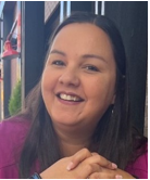 |
| Chelsea Davis (she/her) is a white settler from Treaty 6 territory. She completed her B.A. (English) and her B.Ed. at the University of Saskatchewan and formerly worked as a secondary ELA teacher in Saskatoon. Chelsea is a cross-departmental Ph.D. student in the College of Education at the University of Saskatchewan, supervised by Dr. Carmen Gillies. She completed her Master's degree in Educational Foundations (2020), supervised by Dr. Verna St. Denis. Chelsea's doctoral research topic is a critical race analysis of K-12 educational policy. |  |
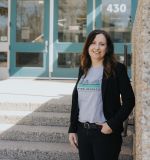
Reconciliation is more than a word or a document for others to follow. It lives in our day to day work in schools and our actions as leaders. In this session I will share my journey and the actions I have taken to make Reconciliation a part of my leadership in school as well as my mission as a human being.
documents/walking-the-path-of-reconcilli-action-principals-short-course.pdf
This session will explore the world of Student Support Services in Saskatchewan schools, with an emphasis on Prairie Spirit School Division. Main topics will include learning support services, Duty to Accommodate Students, student programming for instruction and behavior, and The Adaptive Dimension, all through the lens of inclusive education practices. We hope that participants will leave the session with a deeper understanding of how important it is for school teams to meaningfully support all learners in their building.
documents/spsc-inclusive-education-pssd-july-7-2023.pdf
| Fay Cassidy has been a Teacher, Reading Clinician, Consultant, Coordinator, and Learning Superintendent and has worked in school divisions in BC, Manitoba and currently, in Prairie Spirit in Saskatchewan. This fall she will be moving into her new role as HR Superintendent in PSSD. | 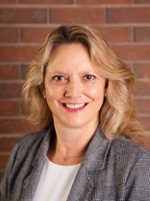 |
| Mitch Luiten has been a Teacher, Principal, and Coordinator with PSSD. This fall he will continue his work in student support services as a Learning Superintendent. | 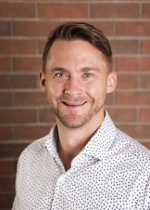 |
